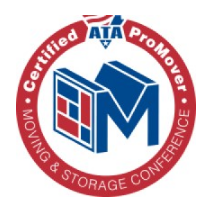How Much Does a Cross-Country Move Cost?

Moving across the country is a major life decision that comes with a mix of excitement and apprehension. One of the most pressing concerns for many individuals and families is the cost associated with such a significant relocation.
From the distance traveled and the size of your home to the moving method you choose and the timing of your move, several factors can greatly impact the overall expenses. According to recent data, the average cost to move across the country ranges from approximately $2,400 to $15,000.
However, with careful planning and a solid understanding of the various elements that contribute to these costs, you can develop a realistic budget and make informed decisions throughout the moving process.
By breaking down the key factors that determine the cost of moving across the country, providing average cost estimates for different moving scenarios, and offering practical strategies to help reduce expenses without compromising the quality of your move, you can navigate this exciting yet challenging journey with confidence and peace of mind.
Additionally, addressing frequently asked questions and sharing valuable insights can further assist in the decision-making process. With the right information and preparation, you can successfully manage the financial aspects of your cross-country move.
Factors That Determine The Cost Of Moving Across The Country
Planning a cross-country move requires understanding the various factors that can significantly impact your overall expenses. Familiarizing yourself with these elements can help you better estimate your moving costs and make informed decisions throughout the relocation process.
Distance And Location
Impact Of Mileage On Overall Cost
The distance between your current home and your new destination is one of the most significant factors affecting the cost of your cross-country move. Long-distance moves require more fuel, labor, and time, which translates to increased costs for transportation and moving company cost average.
Differences In Pricing Based On Origin And Destination States
The specific states you are moving from and to can also influence your moving costs. States with higher labor costs, fuel prices, or taxes can impact the overall expense of your move, resulting in higher moving fees compared to states with lower costs of living.
Size Of Your Home And Amount Of Belongings
Estimating Costs Based On Number Of Bedrooms
The size of your home is another crucial factor in determining your moving costs. A general rule of thumb is to estimate your expenses based on the number of bedrooms in your current residence, with larger homes typically costing more to relocate.
Influence Of Weight And Volume On Moving Expenses
The weight and volume of your belongings also play a significant role in your moving costs. Most moving companies calculate their fees based on the total weight of your items and the space they occupy in the moving truck, so more items result in higher moving expenses.
Choice Of Moving Method
Hiring Professional Movers Vs. DIY Approaches
Your choice of moving method can greatly impact your overall moving costs. Hiring professional movers for a full-service home moving service is generally more expensive than opting for a DIY approach, but it offers expertise, efficiency, and peace of mind.
Renting A Moving Truck Or Using Portable Storage Containers
If you decide to take a DIY approach, you’ll need to consider the costs associated with renting a moving truck or using portable storage containers. Factors such as truck size, distance traveled, fuel costs, and insurance impact the cost of renting a moving truck, while portable storage containers offer a more flexible but potentially more expensive solution for long-distance moves.
Timing Of Your Move
Seasonal Variations In Demand And Pricing
The timing of your move can also affect your overall expenses. The moving industry experiences seasonal fluctuations in demand, with summer months typically being the busiest and most expensive due to factors such as favorable weather conditions, school breaks, and job relocations.
Potential Savings Of Moving During Off-Peak Periods
To potentially save money on your cross-country move, consider scheduling your relocation during off-peak periods, such as the fall or winter months. However, keep in mind that moving during off-peak seasons may come with challenges, such as inclement weather or limited availability of moving services.
Additional Services Required
Packing And Unpacking Assistance
When budgeting for your cross-country move, consider the additional services you may require, such as packing and unpacking assistance. While some people prefer to handle these tasks themselves, others opt for professional help to save time and reduce stress, which can add to your overall moving costs.
Specialty Item Handling (e.g., Pianos, Artwork)
If you have specialty items, such as pianos, artwork, or antiques, you may need to factor in additional costs for their proper handling and transportation. Moving companies may charge extra fees for these services, so it’s essential to discuss your specific needs and get detailed quotes from potential movers.
Storage Solutions For Staged Moves
In some cases, you may need to store your belongings temporarily during a staged move or while waiting for your new home to be ready. When considering storage options, factor in the size of the storage unit, the duration of storage, and any additional fees for accessing or transporting your items.
Average Costs For Different Cross-Country Moving Scenarios
The average expenses associated with different moving scenarios can help you plan your budget and make informed decisions, whether you’re relocating from a studio apartment or a large family home. Let’s break down the average costs for moving studio or one-bedroom apartments, two to three-bedroom homes, and four to five-bedroom residences, as well as discuss variations based on distance.
Studio Or One-Bedroom Apartment
For a cross-country move from a studio or one-bedroom apartment, you can expect to pay an average of $1,500 to $3,500. This estimate includes the cost of hiring professional movers, transportation, and basic insurance coverage, but the actual cost may vary depending on factors such as the distance of your move, the weight of your belongings, and any additional services you require, such as packing or storage.
Two To Three-Bedroom Home
The average cost of a cross-country move for those relocating from a two to three-bedroom home ranges from $4,000 to $8,000. This estimate accounts for the increased volume of belongings and the additional labor required to pack, load, and transport your items, but keep in mind that your actual costs may be higher or lower depending on your specific circumstances, such as the distance of your move and the services you opt for.
Four To Five-Bedroom Home
Moving a larger home, such as a four to five-bedroom residence, across the country can be a significant undertaking, with average costs ranging from $8,000 to $15,000 or more. This higher price point reflects the increased complexity of the move, the greater volume of belongings, and the need for additional moving personnel and resources, so it’s essential to work closely with your chosen moving company and carefully plan your budget to accommodate these costs.
Variations Based On Distance (e.g., Coast-To-Coast Moves)
The distance of your move can significantly impact your overall expenses in addition to the size of your home. For example, a coast-to-coast move, such as relocating from New York to California, will generally cost more than a move of a similar size across a shorter distance, like from New York to Illinois, with recent data showing that the average cost of a coast-to-coast move for a two to three-bedroom home can range from $6,000 to $12,000 or more.
It’s important to note that these are general estimates, and your actual moving costs may vary based on factors such as the specific route, the time of year, and any additional services you require. To get a more accurate picture of your potential expenses, it’s recommended to request detailed quotes from several reputable moving companies and discuss your specific needs and requirements with them.
Strategies To Reduce Cross-Country Moving Expenses
Moving across the country can be a costly endeavor, but there are several strategies you can employ to reduce your expenses without compromising the quality of your move. From decluttering your home and utilizing cost-effective packing materials to comparing quotes from multiple moving companies and considering alternative moving methods, we’ll explore practical ways to save money during your cross-country relocation. We’ll also discuss the importance of planning your move well in advance to avoid last-minute surcharges and ensure a smooth transition.
Decluttering And Downsizing Before The Move
One of the most effective ways to reduce your moving costs is to declutter and downsize before your move. By selling, donating, or discarding unused items, you can significantly reduce the weight and volume of your belongings, which directly impacts the overall cost of your move.
Benefits Of Selling, Donating, Or Discarding Unused Items
Taking the time to sort through your possessions and identify items you no longer need or use can not only save you money on moving expenses but also provide an opportunity to earn extra cash. You can sell unwanted items through garage sales, online marketplaces, or consignment shops, while donating gently used items to local charities or non-profit organizations can help you declutter while supporting a good cause.
Lowering Moving Costs By Reducing Weight And Volume
Reducing the weight and volume of your belongings can lower your moving costs significantly. Moving companies typically base their prices on the total weight of your shipment and the space required in the moving truck, so by decluttering and downsizing, you can minimize these factors and potentially save hundreds or even thousands of dollars on your cross-country move.
Utilizing Cost-Effective Packing Materials
Packing materials can quickly add up and contribute to the overall cost of your move. However, by being resourceful and utilizing cost-effective packing materials, you can save money without compromising the safety of your belongings.
Sourcing Free Or Recycled Boxes And Supplies
Instead of purchasing brand new boxes and packing supplies, consider sourcing free or recycled materials. Many local businesses, such as grocery stores, liquor stores, and office supply stores, often have sturdy boxes available for free, and you can also ask friends, family, or neighbors if they have any spare boxes or packing materials they’re willing to share.
Creative Alternatives To Traditional Packing Materials
In addition to sourcing free or recycled boxes, you can also use creative alternatives to traditional packing materials. For example, instead of buying bubble wrap, you can use towels, linens, or clothing to wrap and protect fragile items, while suitcases, laundry baskets, and reusable containers can also serve as effective packing solutions, saving you money on additional boxes.
Comparing Quotes From Multiple Moving Companies
To ensure you’re getting the best value for your money, it’s essential to compare quotes from multiple moving companies before making a decision. By researching and vetting potential movers, you can find a reputable company that offers competitive rates and quality services.
Researching And Vetting Potential Movers
Start by researching moving companies online, reading reviews from previous customers, and checking their ratings with organizations like the Better Business Bureau. Request in-home estimates from at least three different companies to get a clear picture of their services and pricing, and during these estimates, ask questions about their experience, insurance coverage, and any additional fees or charges that may apply.
Negotiating Rates And Seeking Discounts
Once you have a few quotes from reputable moving companies, don’t be afraid to negotiate rates or ask about available discounts. Some companies offer discounts for military personnel, seniors, or students, while others may provide reduced rates for off-peak moving times or flexible scheduling, so be sure to inquire about any promotions or special offers that could help you save money on your cross-country move.
Considering Alternative Moving Methods
Traditional full-service moving companies aren’t the only option for cross-country relocations. By considering alternative moving methods, you may be able to save money while still ensuring your belongings are transported safely and efficiently.
Renting A Portable Storage Container
One popular alternative to traditional moving services is renting a portable storage container. Companies like PODS, U-Pack, and ABF’s U-Box deliver a container to your home, which you then load at your own pace, and once your container is packed, the company transports it to your new location, where you unload your belongings.
Opting For A Hybrid Move (DIY Packing + Professional Transport)
Another cost-saving alternative is a hybrid move, which combines DIY packing with professional transport. In this scenario, you pack your belongings and load them into a rented moving truck or trailer, then a professional driver from the rental company transports your items to your new home, where you unload and unpack them yourself.
Planning Your Move Well In Advance
One of the most crucial strategies for reducing cross-country moving expenses is to plan your move well in advance. By giving yourself ample time to organize and prepare for your relocation, you can avoid last-minute surcharges and ensure a smoother, more cost-effective transition.
Avoiding Last-Minute Surcharges And Limited Availability
Many moving companies charge higher rates for last-minute bookings or during peak moving seasons, such as summer months. By planning your move well in advance, you can secure better rates and avoid the stress of limited availability, so aim to book your moving services at least 8-12 weeks before your desired moving date to take advantage of early booking discounts and ensure you have a wide selection of reputable movers to choose from.
Allowing Time To Organize And Prepare For The Transition
Planning your move well in advance allows you ample time to organize and prepare for the transition. This includes decluttering your home, sourcing packing materials, and completing essential things to do before moving, such as updating your address, transferring utilities, and notifying important contacts of your relocation, and by giving yourself sufficient time to handle these tasks, you can minimize stress, avoid costly mistakes, and ensure a more organized and efficient cross-country move.
Budgeting For Additional Expenses Beyond The Basic Moving Costs
When planning a cross-country move, it’s essential to consider the various expenses that extend beyond the basic moving costs. These additional expenses can quickly add up and strain your budget if not accounted for in advance.
Travel Costs For You And Your Family
If you’re moving across the country, you’ll need to account for the travel costs associated with getting you and your family to your new home. Depending on your preferred mode of transportation and the distance you’re traveling, these expenses can vary significantly.
If you choose to fly, budget for airfare, baggage fees, and transportation to and from the airports. If you decide to drive, consider the cost of fuel, meals, and overnight accommodations along the way.
Don’t forget to factor in any additional expenses for pet travel or shipping your vehicles if necessary.
Temporary Housing Or Hotel Stays During The Transition
In some cases, your new home may not be immediately available upon arrival in your new city. If this is the case, you’ll need to budget for temporary housing or hotel stays during the transition period.
Research the average cost of short-term rentals or extended-stay hotels in your new area and factor this expense into your overall moving budget. Keep in mind that these costs can add up quickly, especially if you have a family or require a larger living space.
Setting Up Utilities And Services At Your New Home
Another expense to consider when moving across the country is the cost of setting up utilities and services at your new home. This may include electricity, gas, water, internet, cable, and phone services.
Some providers may require deposits or installation fees, which can add to your upfront costs. Research the utility companies in your new area and gather estimates for each service to help you budget accordingly.
Don’t forget to factor in any additional expenses for transferring or canceling services at your current residence.
Replacing Items That Don’t Make The Move
When moving long-distance, there may be some items that you choose not to bring with you due to size, weight, or practicality. This could include furniture, appliances, or even clothing that no longer suits your new climate.
Be sure to budget for replacing these items once you arrive at your new home. Consider the cost of purchasing new furniture, household essentials, and any other items you may need to make your new space feel like home.
If possible, try to plan ahead and take advantage of sales or discounts to help offset these expenses.
Factoring In Potential Loss Of Income During The Relocation Process
Finally, it’s crucial to consider the potential loss of income during the relocation process. If you or your partner need to take time off work to facilitate the move, this can result in a temporary reduction in your household income.
Additionally, if you’re relocating for a new job, there may be a gap between your start date and your first paycheck. To mitigate the financial impact of this transition period, try to save up an emergency fund to cover your living expenses during this time.
Consider the length of time you may be without income and budget accordingly. By using a moving expense calculator and carefully considering these additional expenses, you can develop a more accurate and comprehensive budget for your cross-country move.
Remember to ask yourself, “is 5k sufficient to move?” and adjust your budget as needed to ensure a successful and financially stable relocation. With proper planning and foresight, you can navigate the financial challenges of a long-distance move and start your new chapter on a solid foundation.
Frequently Asked Questions
- What Is The Cheapest Way To Move Across The Country?
Renting a moving truck and handling the packing, loading, and driving yourself is typically the cheapest way to move across the country. This DIY approach can save you thousands of dollars compared to hiring full-service movers, but it does require more time, effort, and planning on your part.
- How Much Should I Budget For A Cross-Country Move?
The amount you should budget for a cross-country move depends on various factors, such as the size of your home, the distance of your move, and the services you require. On average, a cross-country move can cost anywhere from $2,000 to $8,000 or more, so it’s best to get quotes from multiple moving companies and create a detailed budget that accounts for all potential expenses.
- Are There Any Tax Deductions Available For Moving Expenses?
As of 2018, tax deductions for moving expenses are no longer available for most individuals due to changes in the tax law. However, active-duty military members who are required to move due to a permanent change of station may still be eligible for certain tax deductions related to their moving expenses.
- What Are Some Often-Overlooked Costs When Moving Long Distance?
Some often-overlooked costs when moving long distance include:
- Packing materials (boxes, tape, bubble wrap, etc.)
- Additional insurance coverage for valuable items
- Fees for moving specialty items (pianos, artwork, etc.)
- Transportation and lodging costs during the move
- Utility setup fees and deposits at your new home
- How Far In Advance Should I Start Planning My Cross-Country Move?
Ideally, you should start planning your cross-country move at least 2-3 months in advance. This will give you enough time to research moving companies, gather quotes, declutter your belongings, pack, and make necessary arrangements for your transition.
Starting early can also help you secure better rates and availability from movers, as well as give you more time to address any unexpected challenges that may arise.
Conclusion
Moving across the country is a significant undertaking that requires careful consideration of numerous factors, including distance, home size, moving method, timing, and additional services. While the average cost can range from $2,400 to $15,000, thorough planning and budgeting can help manage expenses effectively.
Decluttering, utilizing cost-effective packing materials, comparing quotes from multiple movers, and considering alternative moving methods can minimize costs without sacrificing the quality of your moving experience.
By creating a personalized moving plan that aligns with your unique needs and budget, you can ensure a successful and stress-free transition to your new home.
Related Articles
Where to Move from Texas: Top 10 States for Ex-Texans in 2025

Where to Move from Texas: Top 10 States for Ex-Texans in 2025 Record numbers of Texans are exploring life beyond state lines, driven by soaring housing costs, evolving career landscapes, and the search for new lifestyle opportunities. The decision to leave Texas stirs intense emotions – after all, the Lone Star State‘s unique culture and […]
Read MoreHow to Move a House from One Location to Another: Planning to Completion

Relocating an entire house might seem like something out of a movie, but this remarkable feat of engineering happens more often than you’d think. From preserving historic mansions to saving beloved family homes from coastal erosion, house moving represents the intersection of cutting-edge engineering and practical problem-solving. With project costs typically ranging from $18,000 to […]
Read More




